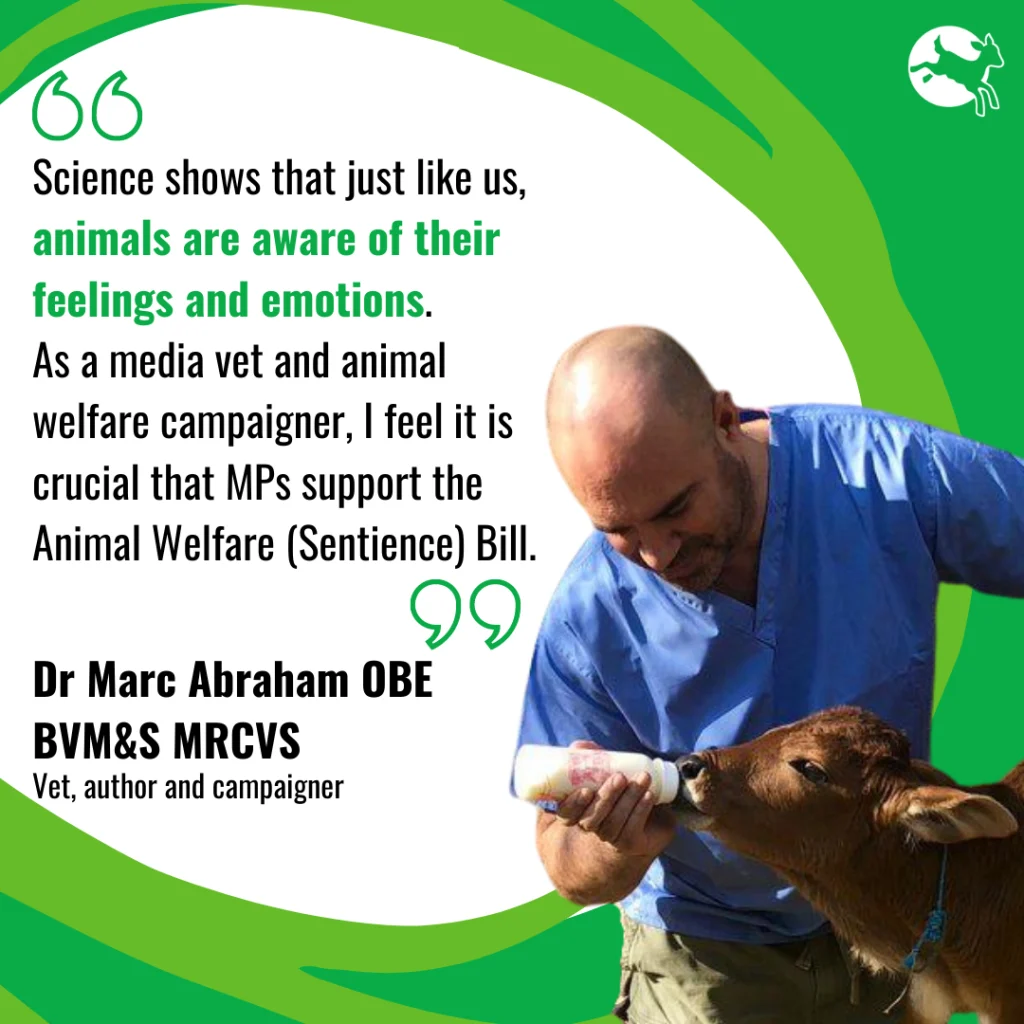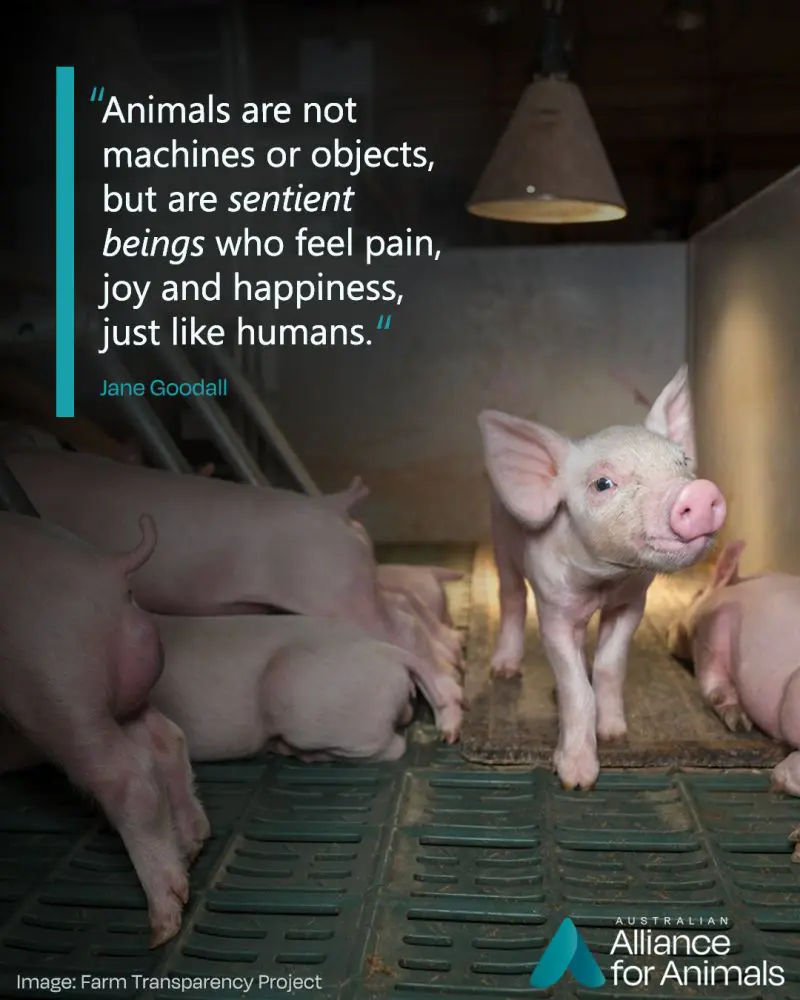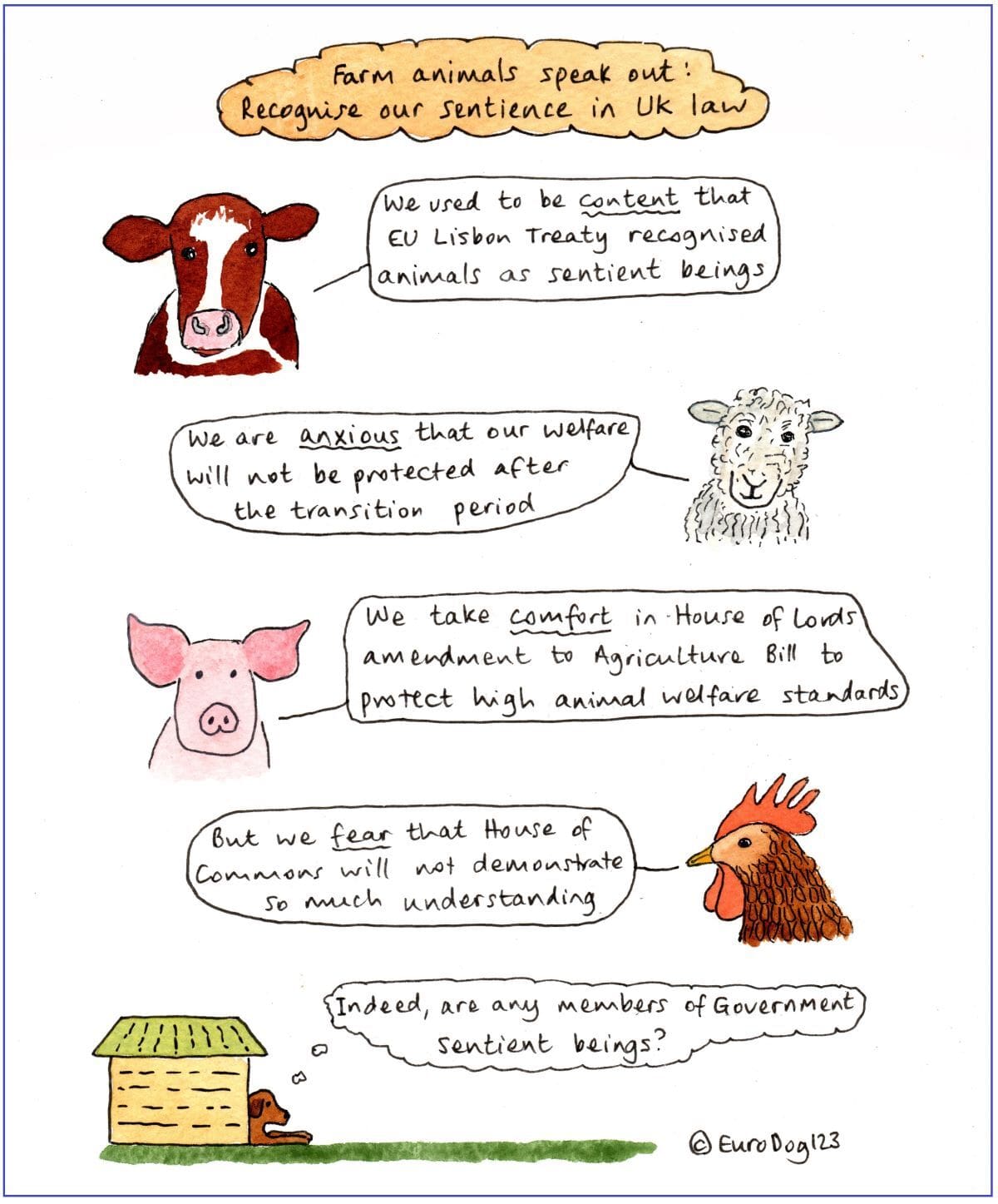Peternakan pabrik, sistem industri yang memelihara hewan untuk dimakan, telah menjadi metode produksi daging, telur, dan susu yang dominan di seluruh dunia. Meskipun sistem ini telah berhasil memenuhi permintaan produk hewani yang terus meningkat, sistem ini sering kali mengabaikan masalah etika mendasar: perasaan hidup hewan. Perasaan hewan mengacu pada kapasitas mereka untuk mengalami perasaan, termasuk kesenangan, rasa sakit, dan emosi. Mengabaikan sifat bawaan ini tidak hanya mengakibatkan penderitaan yang sangat besar namun juga menimbulkan pertanyaan moral dan sosial yang serius.
Memahami Perasaan Hewan
Penelitian ilmiah telah berulang kali menegaskan bahwa banyak hewan ternak, seperti babi, sapi, ayam, dan ikan, memiliki tingkat kesadaran dan kompleksitas emosional. Perasaan bukan hanya sebuah konsep filosofis tetapi berakar pada perilaku dan respons fisiologis yang dapat diamati. Penelitian telah menunjukkan bahwa babi, misalnya, menunjukkan kemampuan memecahkan masalah yang sebanding dengan primata, menunjukkan empati, dan mampu mengingat jangka panjang. Demikian pula, ayam terlibat dalam interaksi sosial yang kompleks dan menunjukkan perilaku antisipatif, yang menunjukkan kapasitas untuk melihat ke depan dan membuat perencanaan.
Sapi, sering dianggap sebagai hewan yang tabah, menunjukkan berbagai emosi, termasuk kegembiraan, kecemasan, dan kesedihan. Misalnya, induk sapi diamati bersuara selama berhari-hari ketika dipisahkan dari anaknya, suatu perilaku yang konsisten dengan ikatan keibuan dan tekanan emosional. Bahkan ikan, yang sudah lama diabaikan dalam diskusi tentang kesejahteraan hewan, menunjukkan respons terhadap rasa sakit dan menunjukkan kemampuan belajar dan mengingat, seperti yang ditunjukkan dalam penelitian yang melibatkan navigasi labirin dan penghindaran predator.

Mengakui perasaan hewan memaksa kita untuk memperlakukan mereka tidak hanya sebagai komoditas tetapi juga sebagai makhluk yang patut mendapat pertimbangan etis. Mengabaikan sifat-sifat yang didukung secara ilmiah ini akan melanggengkan sistem eksploitasi yang mengabaikan nilai hakiki mereka sebagai makhluk hidup.
Praktek di Pabrik Peternakan
Praktek-praktek di pabrik peternakan sangat bertentangan dengan pengakuan akan perasaan terhadap hewan.

1. Kepadatan dan Pengurungan
Hewan di pabrik peternakan sering kali dipelihara di ruangan yang sangat padat. Ayam, misalnya, dikurung dalam kandang baterai yang sangat kecil sehingga tidak bisa melebarkan sayapnya. Babi ditempatkan di kandang kehamilan yang mencegah mereka berbalik arah. Pengurungan seperti itu menyebabkan stres, frustrasi, dan rasa sakit fisik. Studi ilmiah menunjukkan bahwa pengurungan dalam waktu lama memicu perubahan hormonal pada hewan, seperti peningkatan kadar kortisol, yang merupakan indikator langsung stres kronis. Ketidakmampuan untuk menggerakkan atau mengekspresikan perilaku alami mengakibatkan kemunduran fisik dan penderitaan psikologis.
2. Mutilasi Fisik
Untuk meminimalkan agresi yang disebabkan oleh kondisi kehidupan yang penuh tekanan, hewan menjalani prosedur yang menyakitkan seperti pemotongan paruh, pemotongan ekor, dan pengebirian tanpa anestesi. Praktik-praktik ini mengabaikan kemampuan mereka untuk merasakan sakit dan trauma psikologis yang terkait dengan pengalaman tersebut. Misalnya, penelitian telah mendokumentasikan peningkatan respons nyeri dan perubahan perilaku jangka panjang pada hewan yang menjalani prosedur ini. Kurangnya penanganan rasa sakit tidak hanya mencerminkan kekejaman namun juga memperburuk kerugian fisik dan mental pada hewan-hewan ini.
3. Kurangnya Pengayaan
Pabrik peternakan gagal menyediakan pengayaan lingkungan yang memungkinkan hewan mengekspresikan perilaku alaminya. Misalnya, ayam tidak bisa mandi debu atau hinggap, dan babi tidak bisa berakar di tanah. Perampasan ini menimbulkan kebosanan, stres, dan perilaku tidak normal seperti mematuk bulu atau menggigit ekor. Penelitian menunjukkan bahwa pengayaan lingkungan, seperti menyediakan alas jerami untuk babi atau tempat bertengger untuk ayam, secara signifikan mengurangi perilaku yang disebabkan oleh stres dan mendorong interaksi sosial yang lebih sehat antar hewan. Tidak adanya langkah-langkah ini di pabrik peternakan menyoroti pengabaian terhadap kesejahteraan psikologis mereka.
4. Praktik Penyembelihan yang Tidak Manusiawi
Proses penyembelihan seringkali melibatkan penderitaan yang luar biasa. Banyak hewan yang tidak dipingsankan dengan benar sebelum disembelih, sehingga menyebabkan kematian yang menyakitkan dan menakutkan. Kemampuan mereka untuk mengalami ketakutan dan kesusahan pada saat-saat seperti ini menggarisbawahi betapa kejamnya metode-metode tersebut. Penelitian yang menggunakan analisis detak jantung dan vokalisasi telah menunjukkan bahwa hewan yang dipingsankan secara tidak tepat akan mengalami stres fisiologis dan emosional yang ekstrem, yang semakin menekankan perlunya praktik penyembelihan yang manusiawi. Meskipun ada kemajuan dalam teknologi, penerapan metode pemingsanan yang tidak konsisten tetap menjadi masalah penting dalam peternakan.
Implikasi Etis
Mengabaikan perasaan terhadap hewan dalam praktik peternakan mencerminkan pengabaian yang meresahkan terhadap tanggung jawab etis. Memperlakukan makhluk hidup hanya sebagai unit produksi menimbulkan pertanyaan tentang belas kasih manusia dan kemajuan moral. Jika kita mengakui kemampuan hewan untuk menderita, kita secara moral berkewajiban untuk meminimalkan penderitaan tersebut. Pabrik peternakan, dalam bentuknya yang sekarang, gagal memenuhi standar etika ini.
Alternatif untuk Peternakan Pabrik
Menyadari perasaan terhadap hewan memaksa kita untuk mengeksplorasi dan mengadopsi praktik yang lebih manusiawi dan berkelanjutan. Beberapa alternatif meliputi:
- Pola Makan Nabati: Mengurangi atau menghilangkan konsumsi produk hewani dapat menurunkan permintaan pabrik peternakan secara signifikan.
- Daging yang Dibudidayakan Sel: Kemajuan teknologi dalam daging yang dihasilkan di laboratorium menawarkan alternatif yang bebas dari kekejaman terhadap peternakan hewan tradisional.
- Perundang-undangan dan Standar: Pemerintah dan organisasi dapat menerapkan standar kesejahteraan hewan yang lebih ketat untuk memastikan perlakuan yang manusiawi.
















































